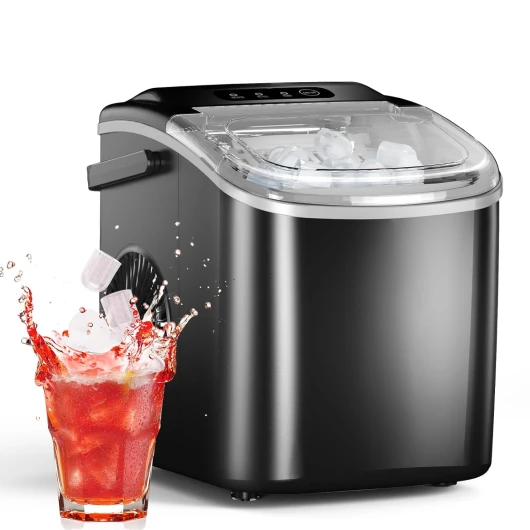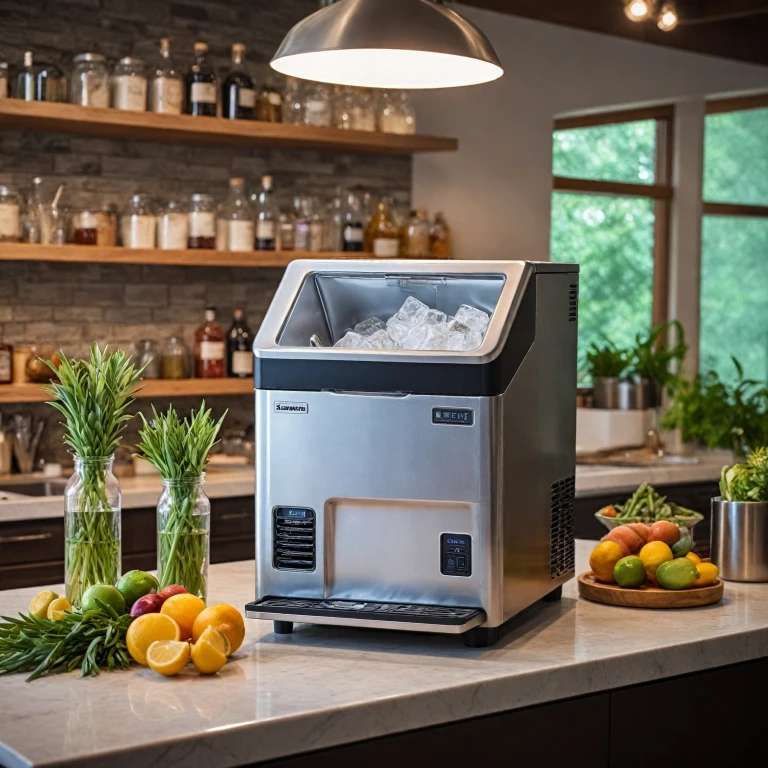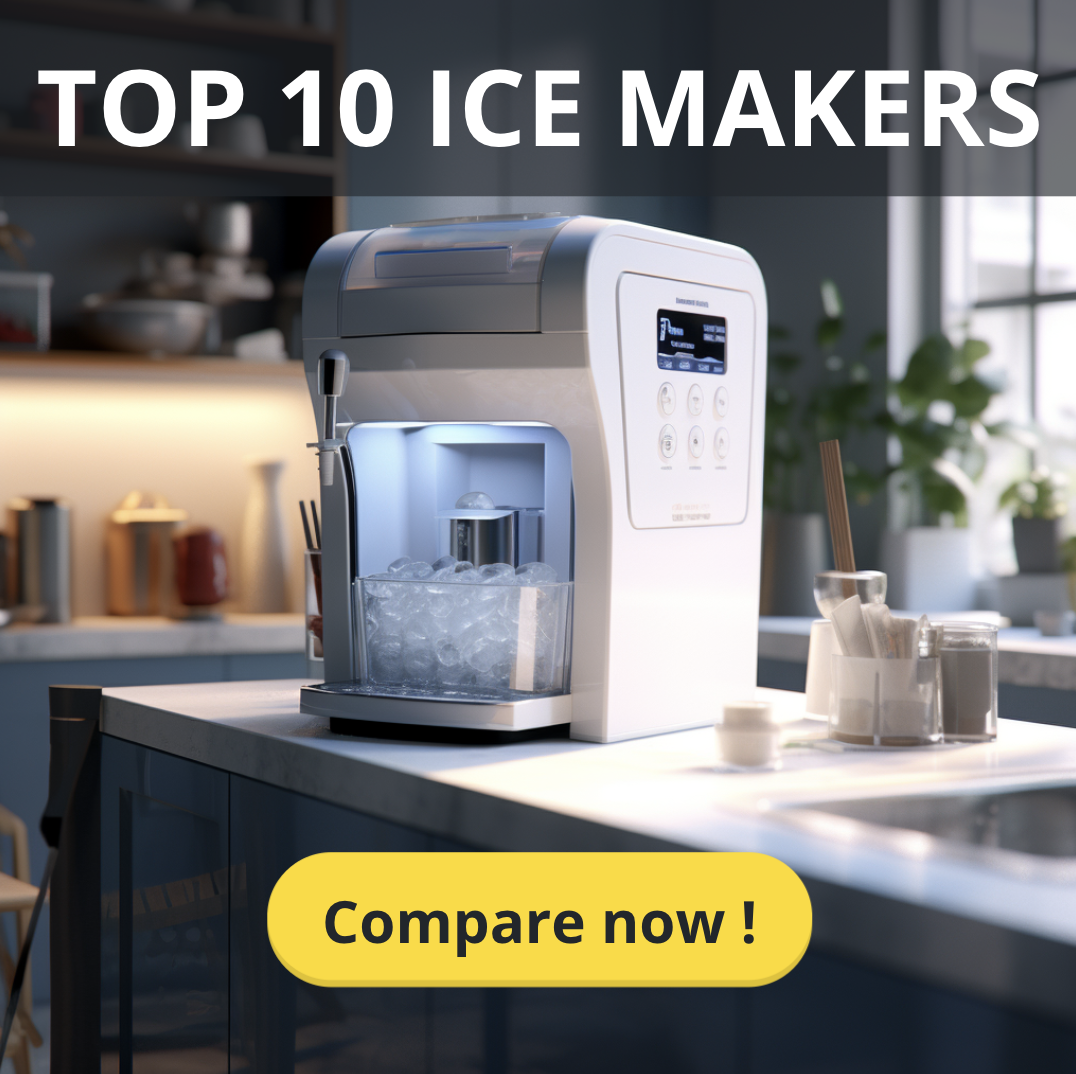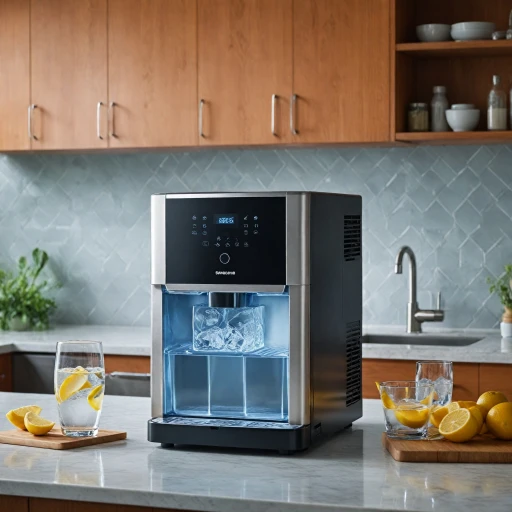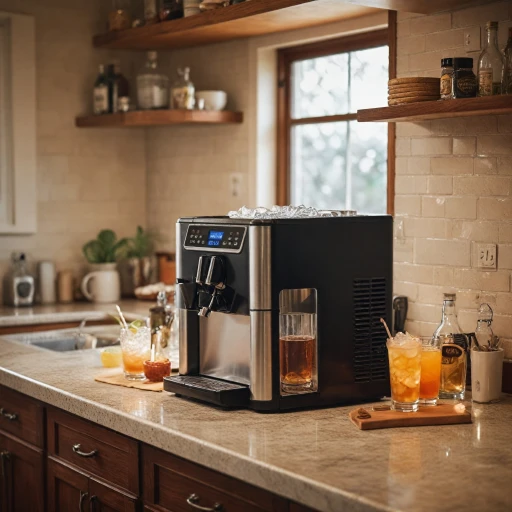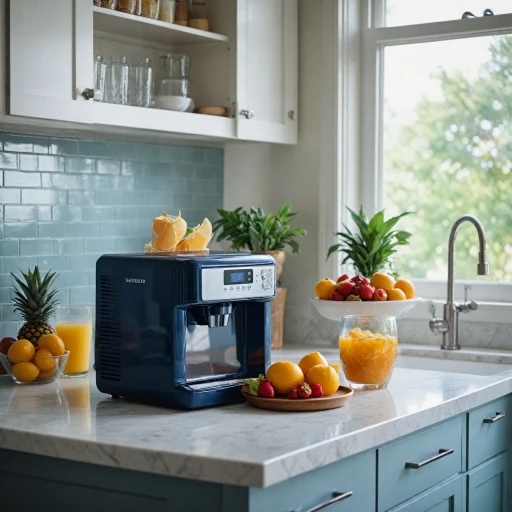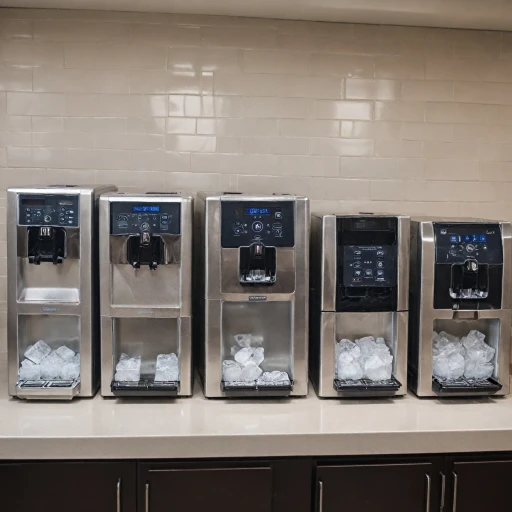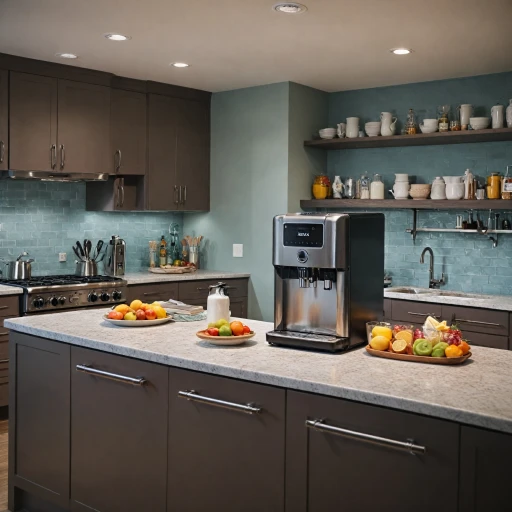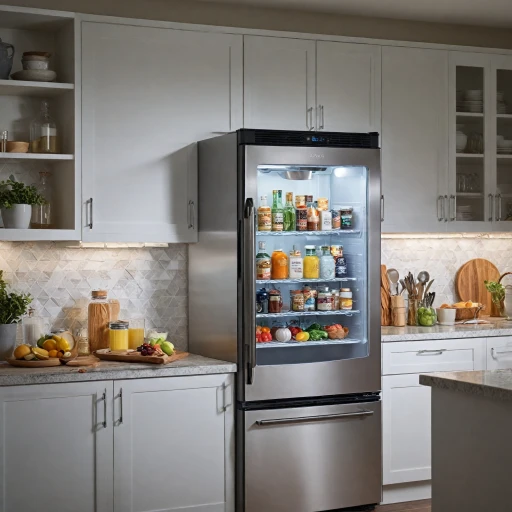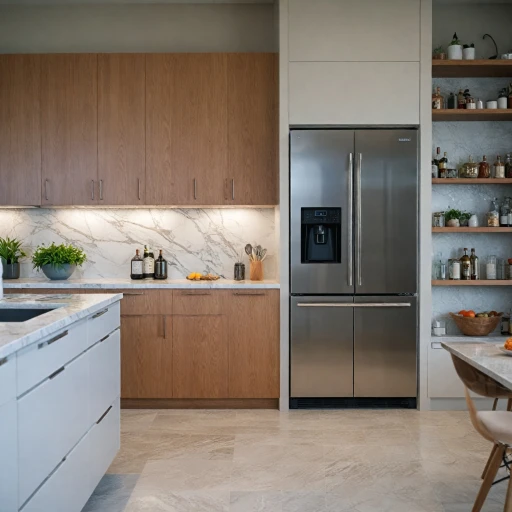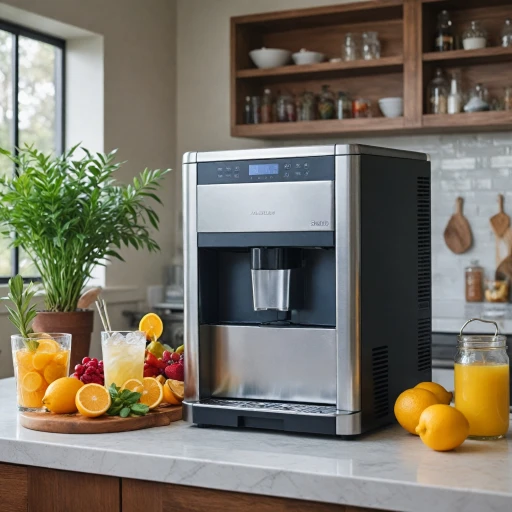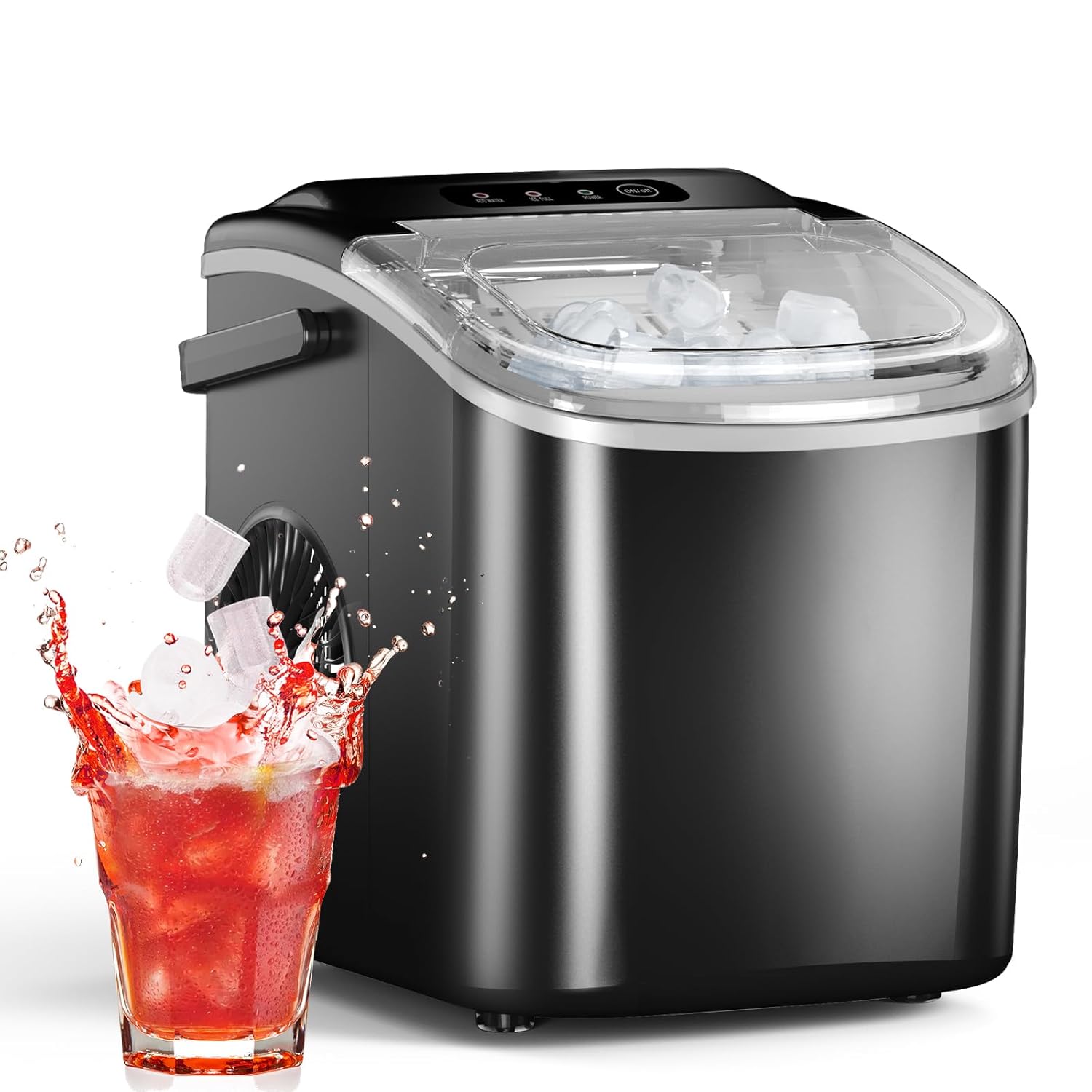
Understanding Your Ice Needs
Determining Your Ice Requirements
When venturing into acquiring a small commercial ice maker for your business, the first step is gauging your actual ice needs. This ensures you invest in the right-sized machine, whether it's for a bustling bar or a cozy cafe. The required volume can fluctuate significantly depending on the nature and size of your establishment. Consider factors like peak periods, the number of guests, and the types of beverages served.
On average, businesses serving large crowds might need to produce over 1000 lbs of ice per day, whereas smaller establishments might suffice with a machine capable of generating just a few hundred lbs. Understanding these demands helps in assessing the right maker and sidesteps potential shortages.
Additionally, it's essential to decide on the type of ice cubes you aim to offer, since specific applications may require full dice cubes, nugget ice, or even crushed ice. Each type of cube has its own unique appeal based on how it's used. This can influence not only the functionality but also the budgeting choices regarding ice dispensers and storage units.
Types of Ice Makers Available
Exploring the World of Ice Making Machines
When selecting a small commercial ice maker, understanding the various types available is essential. These machines come in different forms and are designed to meet specific ice production needs. Here's a breakdown of the most common types:
- Modular Ice Machines: These units are ideal for businesses needing a high volume of ice, as they offer a large production capacity, often exceeding thousands of lbs (pounds) per day. Pairing a modular machine with a separate storage bin allows for greater flexibility in placement.
- Undercounter Ice Machines: Space-saving and efficient, these machines are perfect for smaller establishments. They typically produce less ice than modular units, with production rates ranging from about 100 to 500 lbs per day, but are convenient for places where space is a premium.
- Countertop Ice Makers: Best suited for businesses that need nugget ice or cube ice frequently. Their compact design fits on countertops, making them suitable for quick access in cafes and bars.
- Freestanding Ice Makers: With a design that allows them to stand alone, these machines are often air cooled and made of stainless steel, which ensures durability. They are versatile in placement and can produce a wide range of ice cubes.
When choosing the type that suits your business the best, consider the specific ice type you require. Whether it's the clear, professional look of full-dice ice cubes or the softer, chewable nugget ice, each ice maker type varies in its specialization. Beyond ice type, think about your space and bin storage needs, as these will also affect your decision.
Budgeting plays a role too, as the price of ice machines varies considerably depending on the type and features you need. Keep in mind that some come with options such as water-cooled or freestanding models, which can add to the overall cost.
Key Features to Consider
Features That Make a Difference
When selecting a small commercial ice maker, it's crucial to focus on specific features that can greatly enhance performance and fit your business needs perfectly. Here's a closer look at some key attributes to consider:- Output Capacity: Determine how many pounds of ice you need per day. Ice makers vary significantly in output, from compact undercounter machines producing around 100 lbs daily to larger freestanding machines producing thousands of lbs.
- Ice Type: Different machines produce varying types of ice, such as cube ice, nugget ice, or full dice. Choose the type that suits your business needs best. For an in-depth exploration of nugget ice options, check out the ultimate guide to nugget ice machines.
- Cooling Method: Commercial ice makers generally come with either air cooled or water cooled systems. Air cooled machines are more energy-efficient but may require space for ventilation, whereas water cooled units are better in warmer environments.
- Material and Construction: Machines crafted from stainless steel typically offer greater durability and ease of cleaning, making them a popular choice for commercial settings.
- Ice Storage: Many machines include a built-in storage bin to hold a reserve of ice. Consider the size of the storage bin relative to your ice production needs to avoid capacity issues.
- Installation Type: Ensure the ice maker fits the designated space in your business, whether opting for an undercounter ice model or a freestanding unit.
- Additional Features: Some machines offer unique benefits like a self-cleaning feature or faster ice production cycles, which can promote efficiency and save on operational costs.
Space and Installation Considerations
Space Requirements and Installation Tips
When selecting a small commercial ice maker, it's crucial to consider the space available in your establishment. Whether you're opting for a freestanding unit or an undercounter ice machine, ensuring that the machine fits comfortably in your designated area is essential. Here are some key points to keep in mind:
- Measure Your Space: Before purchasing, measure the width, depth, and height of the area where you plan to install the ice maker. This will help you choose a model that fits perfectly without any installation issues.
- Ventilation Needs: Most commercial ice machines are air cooled, which means they require adequate ventilation to function efficiently. Ensure there's enough space around the machine for air circulation to prevent overheating.
- Water and Drain Access: Ice makers need a reliable water supply and a drainage system. Check that your installation area has easy access to both to avoid any plumbing complications.
- Storage Bin Considerations: If your ice maker comes with a storage bin, make sure there's enough room to accommodate it. A well-sized bin will help you store ice cubes efficiently, reducing the need for frequent refills.
- Material and Durability: Consider a stainless steel finish for durability and ease of cleaning. Stainless steel not only looks professional but also withstands the rigors of a busy commercial environment.
By taking these factors into account, you can ensure a smooth installation process and optimal performance of your ice maker. Remember, a well-installed machine not only saves space but also enhances the efficiency of your ice production, ultimately benefiting your business.
Budgeting for Your Ice Maker
Financial Planning for Your Ice Equipment
When considering a commercial ice maker for your business, budgeting plays a pivotal role in ensuring you get the best value for your price. Understanding your requirements will guide you in choosing a machine that fits your needs without overextending your budget.
Evaluating different types of commercial ice machines is crucial to determining the price point that works for you. Whether you need a freestanding unit or an undercounter ice machine, each type has a unique pricing range depending on the specific features it offers. For instance, air-cooled machines might differ in cost from water-cooled variants. Additionally, you will need to consider the maker's capacity in lbs for daily ice production.
Costs can also fluctuate based on the materials used. Stainless steel machines, while typically higher in price, offer durability and a professional appearance that may be worth the investment.
- Consider machines with a sizable storage bin if high ice production is a priority.
- Explore options that provide ice cubes, such as nugget or full dice cube ice, depending on your business needs.
- Understanding free shipping costs can aid in determining the total expenditure.
Balancing the initial outlay with long-term operating costs, such as energy efficiency and water usage, can also help you save money in the long run. Regular maintenance plays an essential role in ensuring longevity and reliability, allowing your business to continue operating smoothly.
Maintenance and Longevity Tips
Tips for Maintaining Your Ice Maker Efficiently
When you invest in a commercial ice maker, ensuring its longevity is pivotal for maximizing efficiency and safeguarding your investment. Proper maintenance not only prolongs the lifespan of your machine but also contributes to consistent ice production. Below are some practical tips to help keep your ice maker in optimal condition:- Regular Cleaning: Periodically clean the stainless steel exterior and the storage bin to prevent the buildup of residue and bacteria. Most machines come with cleaning instructions, often requiring a simple solution of water and mild detergent.
- Water Filter Replacement: Ensure the water filter is replaced as recommended by the manufacturer. This helps maintain ice quality, preventing any unpleasant taste or odor in the ice cubes.
- Checking Air Flow: For air cooled models, regularly check that the intake and exhaust fans are clean from dust and free of obstructions. Proper airflow is essential to the overall efficiency and could affect how many lbs of ice your machine produces daily.
- Inspecting for Wear and Tear: Routinely inspect the moving parts within the machine, such as the water pump and ice agitator, for signs of wear. Early detection can prevent larger issues down the line.
- Monitoring Ice Production: Keep a close eye on the output of your freestanding or undercounter ice maker. An unexpected drop in ice making could suggest technical issues that may require professional attention.
- Maintaining the Storage Bin: Regularly empty the ice bin to ensure cubes do not clump together or melt. Ensuring the bin is not overfilled assists in maintaining efficient storage and operational conditions.
- Professional Servicing: Schedule maintenance services at least once a year, especially for large commercial machines. Skilled professionals can identify issues that are not immediately apparent and ensure that your machine remains in top shape.
-logo-retina.png)
